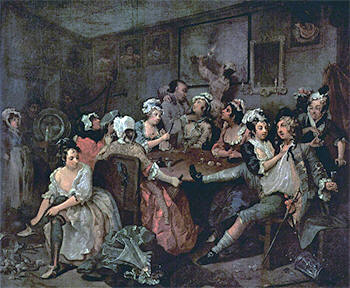| |
| |
|
|
|
| |
| |
TAVERNS --
LICENSED OR NOT
In the earliest days of the Pennsylvania
frontier, licensed establishments didn't exist
-- for that matter, neither did towns, or seats
of government or Proprietary Manors (except as
mere boundary lines on a survey map). The
frontier had yet to be civilized.
First came the mills, then the inns and yaugh
houses, then the churches, then the taverns,
then the villages, until finally, civilization
demanded the services offered by courthouses,
jails, constables, sheriffs, licenses and taxes.
As soon as the first courthouse was established
in 1753, petitions were immediately proffered
for licenses to keep public houses (taverns).
Even so, it wasn't until 1759 that Samuel Dupui
obtained his own license to operate an area
tavern. Licenses, other than as a governmental
means to securing additional revenue, were
promoted with the notion that they would serve
to maintain order, to minimize drunkenness, and
avoid it on Sundays, if at all possible.
Nicholas Dupui's general store
ledger offers only a single entry that
points to such taverns in the 1750s, an
entry in the account of John McDowell
that merely states: "To paid at ye
tavern." Dated to 14 August 1755, the
tavern cited was quite clearly an as
yet unlicensed establishment.
Yet honestly, the patrons didn't care.
Taverns were a tradition, and one always
honored tradition.
As to the titillating implication often
bandied about that many early American
taverns were really brothels (sometimes
termed disorderly houses), there is no
evidence from Dupui's ledger that would
support such a claim at the local level. |
|
 |
|
|
| |
|
|
|
|
|
| |
|
|
|
| |
|
|
|
| |
|
|
| |
|
|
|
|